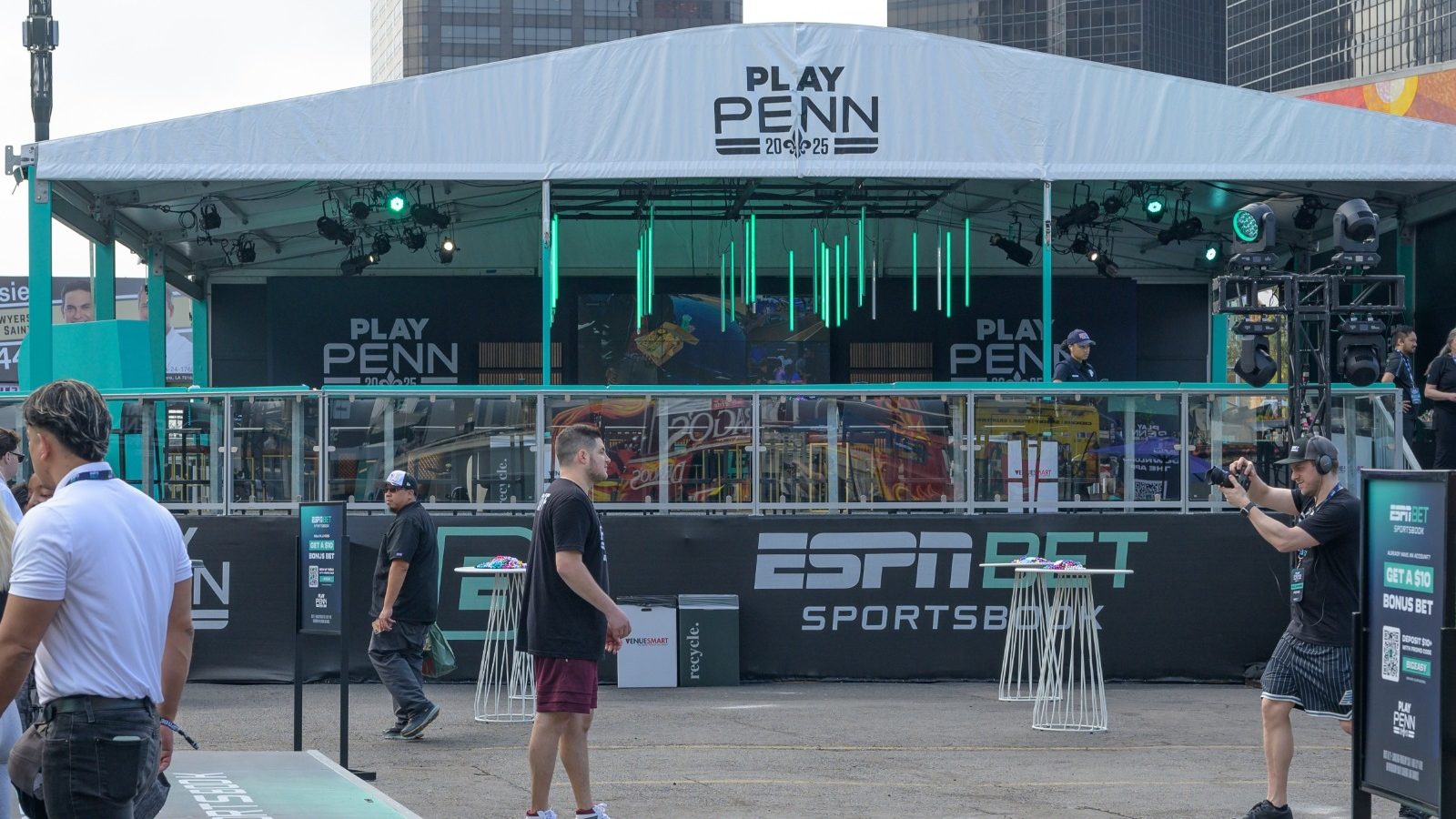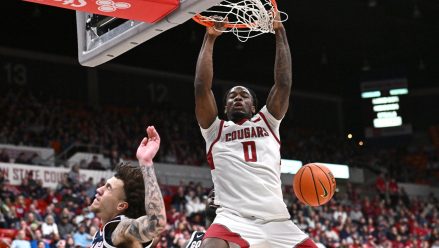Penn Entertainment shareholders voted in two new board members, according to preliminary results announced Tuesday morning, despite activist investor HG Vora seeking three. The company’s annual meeting lasted about 12 minutes and lacked the fireworks some expected, given HG Vora’s public and brash campaign to seat three new members as Penn has argued only two spots were available.
At the beginning of the meeting, held in person and via audio link for shareholders only, Mandy Lamb on behalf of HG Vora Capital Management LLC and HG Vora Special Opportunities Masterfund Limited made the nominations. She said the company is a holder of 100 common shares and “collectively with its affiliates, a very large shareholder.”
An excerpt from the meeting:
Lamb: HG Vora Special Opportunities Masterfund Limited has provided notice of its intention to nominate the following three individuals for election to the company’s board of directors in accordance with the company’s bylaws: Johnny Hartnett, Carlos Ruisanchez and William Clifford. On behalf of HG Vora Special Opportunities Masterfund Limited, I hereby nominate the following individuals for election as directors of the company: Johnny Hartnett, Carlos Ruisanchez, and William Clifford.
Penn CEO Jay Snowden: Thank you, Miss Lamb. Pursuant to the company’s bylaws,the board has set the number of Class II directors at two, and therefore a proposal to nominate a third Class II director is out of order and not permitted.
The question now is, what happens next? HG Vora has been aggressively for months calling out Penn, its executives, and its digital gaming strategy, particularly around sports betting. The next step in a legal case that HG Vora filed in May is a July 10 hearing on a motion to expedite the trial and case management conference. In the initial filing, HG Vora accused Penn executives of “impermissibly placing their interests over those of PENN and its shareholders” and called its partnership with ESPN Bet “a complete failure.”
ESPN Bet deal is pricey
Penn in August 2023 announced a $1.5 billion partnership with ESPN to launch ESPN Bet. The deal is for 10 years, with an option to extend for a second decade, and includes $500 million in Penn stock warrants that vest over time. The deal dovetailed with Penn announcing that it was exiting a deal with Barstool Sports. Penn in 2020 bought a 36% share of the company for $551 million and sold it back to founder Dave Portnoy for $1 in August 2023.
Over the initial 10 years, Penn is paying ESPN $150 million per year — more than the licensing fee in most U.S. states with legal gambling– for the right to use the ESPN name. (If you consider the Barstool deal as part of the digital wagering costs, Penn is paying closer to $20 million per year for a brand.)
Under Snowden’s guidance, Penn also purchased the Canadian wagering media and gambling site theScore in 2021. The price tag was $2 billion, meaning that Penn so far has invested about $4 billion in its digital betting strategy.
The hope was that the ESPN Bet platform would grow quickly but, 18 months in, it has less than 5% market share across the country. During the company’s first-quarter earnings call in May, Snowden — unprompted — said that either Penn or ESPN could exit their deal or rework it after three years if “we haven’t hit a threshold level of revenue market share.”
He had previously said ESPN Bet is staffed as if it were a major player and that Penn might revisit staffing levels and make cuts if the platform isn’t growing.
HG Vora: Snowden overcompensated
HG Vora has repeatedly pointed to Snowden as the key figure in the “failure” of the digital strategy.
HG Vora also believes Snowden is overcompensated. Snowden’s total compensation package last year was $26.7 million compared to $15.5 million in 2023. His $1.8 million salary stayed level from 2023 to 2024, but he was given $16.9 million in stock awards last year compared to $3.4 million in 2023. HG Vora earlier this year accused Penn under Snowden’s stewardship of “reckless spending.”
Clifford’s name was not on the proxy ballot available to shareholders. Ruisanchez and Hartnett were on the proxy ballot with recommendations to vote for both.
Ahead of the meeting, two proxy advisory businesses, Institutional Shareholder Services (ISS) and Glass Lewis, shared different guidance on how to vote. ISS recommended voting for all three of HG Vora’s recommendations while Glass Lewis recommended voting for two. Both companies advise shareholders, including hedge funds, on how to vote at annual shareholder meetings.
ISS controls 48% of the proxy advisory business, and Glass Lewis controls 42%.
Among the other questions were yes-or-no on approving 2024 compensation for executives, an amendment to the company’s long-term incentive compensation plan, and the commission of a study on the effects of a company-wide non-smoking policy. Shareholders did not approve the compensation piece or the non-smoking study, but did approve the long-term incentive plan.
Penn stock opened at $16.31 Tuesday and at 11:30 a.m. EST was trading at $16.37.
Editor’s note: Jill R. Dorson owns a small number of Penn Entertainment shares. She also voted by proxy ahead of the meeting.






